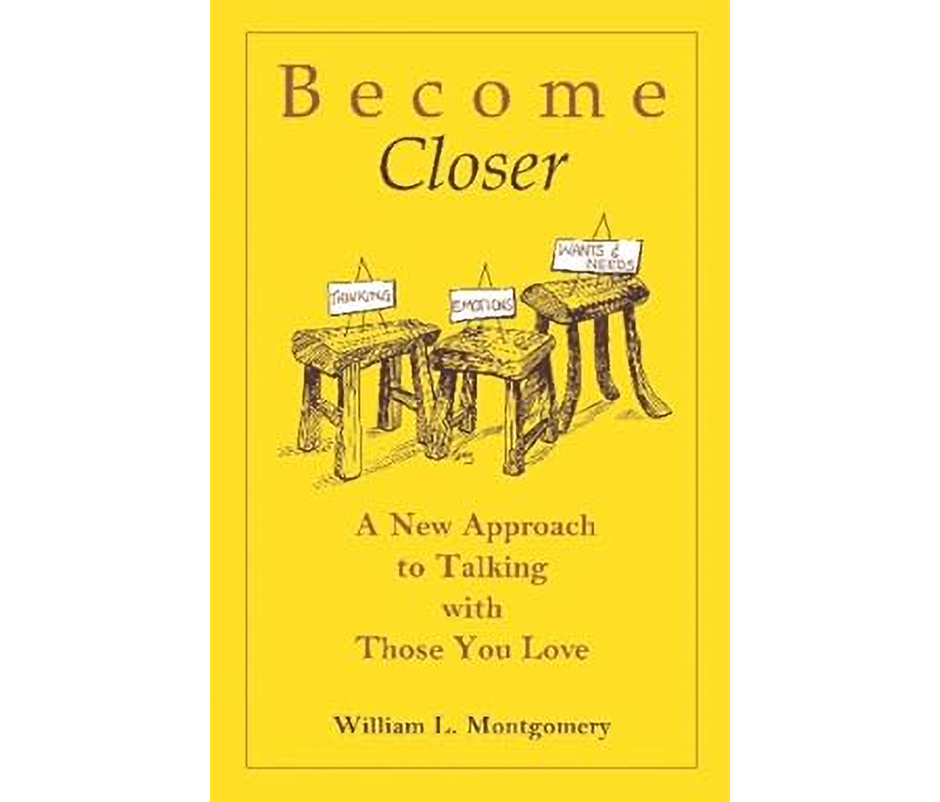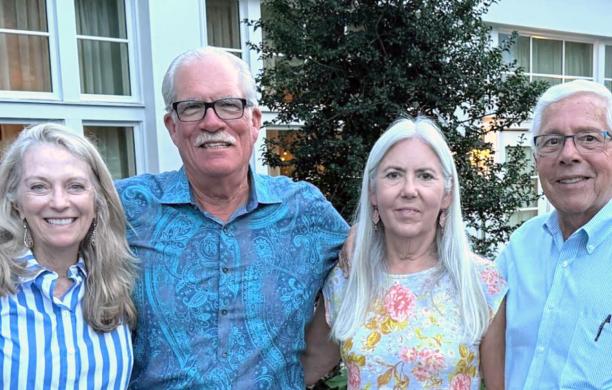When marriage and family therapist Bill Montgomery ’63 talks with couples, he sometimes uses an analogy from his electrical engineering career.
“It’s as if a fiber-optic cable is broken between them,” he says. “They don’t understand themselves or each other very well, and they don’t understand how to talk to each other in relationship.”
Repairing the cable is a focus for Montgomery, who has a private therapy practice in Doylestown, Pennsylvania. He fulfilled a childhood dream when he studied electrical engineering at Lehigh, but there were hints that another career awaited him. After completing a career assessment during his freshmen year, he was shaken when it revealed he could be a farmer or a printer — but not an engineer. Dismayed, he sought the advice of Andrew Edmiston, who was the director of counseling services at Lehigh for 20 years and administered the test.
“Dr. Edmiston told me that it just meant that someday I would close the books on engineering,” Montgomery says.
It took nearly 40 years, but Montgomery did just that in 2001 when he entered the marriage and family therapy program at Philadelphia’s LaSalle University. He launched his private practice following three years of study and an additional four years interning to meet licensure requirements. Although being a therapist might seem like a radical departure from engineering, Montgomery sees it as a progression.
After graduating from Lehigh, he earned master’s and doctoral degrees in engineering at the University of Pittsburgh. Work at Bell Labs and AT&T followed. Eventually Montgomery became a consultant, traveling the world to coach executive teams on quality control and process improvement. He noticed that the dynamic among executives was like that found in families.
“Marriage and family therapy in the field of therapy is called systems therapy,” Montgomery explains. “It’s a system of people working together. My Ph.D. was in systems, so there was actually an overlap.”
He’s found the tools for communicating that he advocates in couples counseling to be valuable for all couples. He shares four suggestions for maintaining a health relationships, which are found in his book Becoming Closer.
Have a Relationship With Yourself

Montgomery says that before we can have a close romantic relationship, we need to have a relationship with ourselves. He encourages people to develop an understanding of their inner lives, their emotions. “Without that, a person doesn’t have a connection with themselves — they have a connection with the outside world,” he explains. Self-understanding is the groundwork for being able to share our inner world with a partner — and to understand theirs.
Focus on Feelings
“There are two ways that we engage in the world,” Montgomery says. “One is through tasks, which is all we do outside ourselves — schoolwork and jobs. The other way we engage is in relationship. Relationship requires us to be aware of our inner selves and about sharing and listening to our partners.” A couple’s communication often tends to center on tasks — buying birthday gifts or where to go on vacation. Moving beyond this kind of communication to share emotions and feelings is the basis of a close relationship.
Validate, Validate, Validate
“I believe there’s one key thing that happens between couples that creates distance between them,” Montgomery says. “And that is when either person feels invalidated by their partner.” He notes that it can start with simple things. A husband who ignores a wife’s repeated requests not to leave dirty dishes in the sink may cause her to feel he doesn’t care about her. “It’s hurtful because he knows this is important to her, and he does it anyhow,” Montgomery explains. In another example, he notes that complaints about a partner’s frequent business trips may mask a fear that they will find someone new. Sharing and responding to such feelings is another way to validate a partner and is vital to a healthy relationship.
Empathy: The Key Ingredient
Empathy — the ability to understand someone else’s feelings and put yourself in their shoes — is key to validating your partner. “A relationship without empathy won’t exist,” Montgomery says. “It’s like trying to make a chocolate cake without chocolate. You’ll have a cake, but it won’t be chocolate. It’s a necessary ingredient.”


